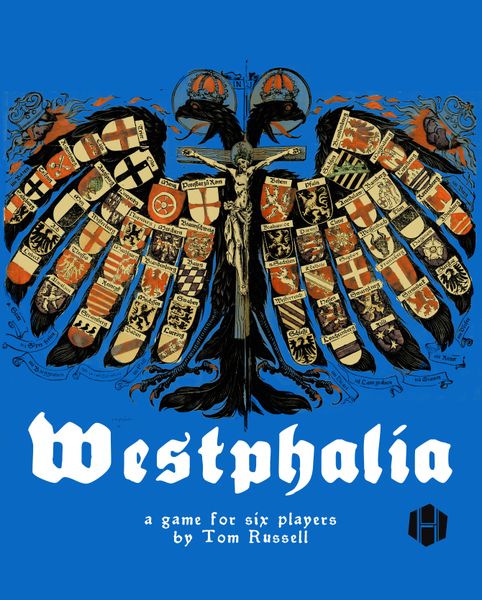Westphalia (2019) Board Game
Westphalia is a board game that takes its name from the Peace of Westphalia, a series of peace treaties signed in 1648 that ended the Thirty Years’ War in Europe. The game captures the essence of negotiations, alliances, and power struggles that characterized this tumultuous period in history.
Game Components of Westphalia
How To Setup Westphalia
Setting up Westphalia involves distributing the faction-specific components, such as goal cards and starting resources, to each player. Each faction has unique starting conditions and victory requirements. For example, Spain begins with 20 Debt, while Austria has specific thresholds for Debt, territory, liberties, and tolerance. Players need to understand their faction’s unique challenges and objectives before starting the game.
Gameplay Mechanics and Game Objective
– Spain: Reduce Debt below 25.
– Austria: Manage thresholds for Debt, territory, liberties, and tolerance.
– Other factions have unique conditions based on historical roles and goals.
Player Experience
Playing Westphalia requires a deep understanding of the delicate balance of power among the factions. It is a game that thrives on negotiation and diplomacy, making it essential for players to be comfortable with these mechanics. The game can have up to five winners, as some factions’ victories are tied to the success of others. This creates a unique multiplayer experience where players must balance their own goals with the need to cooperate.
Pros
Cons
Personal Thoughts on Westphalia
**Westphalia** is a game tailored for those who enjoy complex negotiation and diplomacy. It is ideal for players who appreciate historical depth and are comfortable with the nuances of asymmetric gameplay. However, due to its specific mechanics and player count, it may not be the best fit for casual gamers or those who prefer more straightforward victory conditions. For the right group, though, **Westphalia** offers a unique and engaging experience that simulates the intricate web of alliances and rivalries of 17th-century Europe.
We are supported by our audience. When you purchase through links on our site, we may earn an affiliate commission, at no extra cost for you. Learn more.

